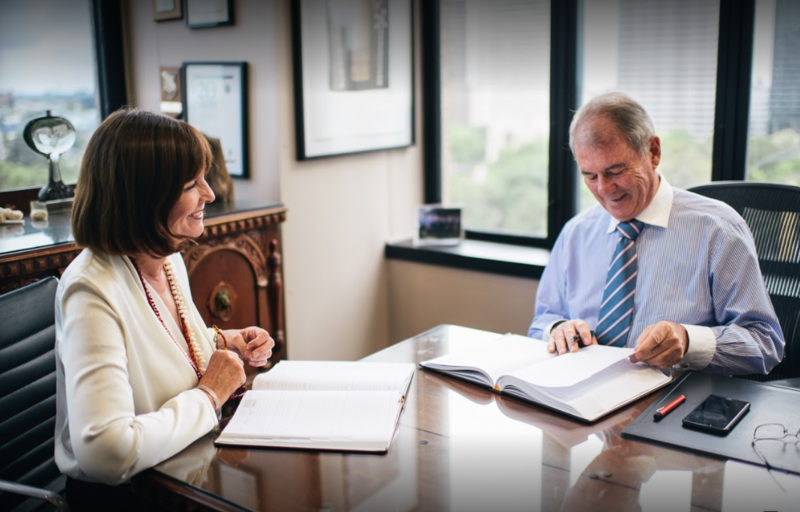
Familty law. Gavel and shapes of men, women and child with books. 3d illustration
When facing family-related legal issues, the importance of having a competent family lawyer cannot be overstated. Legal matters involving family can be complex and emotionally charged, making it crucial to find an attorney who is not only experienced but also empathetic to your situation. This article aims to guide you through the process of finding the right family lawyer in Melbourne, ensuring that you have a trustworthy legal partner by your side.
Understanding the Role of a Family Lawyer
Family lawyers near me specialize in matters that pertain to family law, a branch that encompasses various legal issues such as divorce, child custody, property settlements, and adoption. Their primary goal is to assist clients in navigating these often challenging situations, offering legal advice and representation tailored to individual circumstances.
In essence, a family lawyer functions as both an advisor and an advocate. They help clients understand their rights and obligations under the law, and they represent their interests in negotiations or court proceedings. Having a skilled family lawyer is essential for achieving fair outcomes during tumultuous life events.
Key Responsibilities of a Family Lawyer
Family lawyers have multiple responsibilities, which include:
- Providing legal advice and guidance based on the specifics of the case.
- Drafting legal documents such as separation agreements, custody arrangements, and divorce petitions.
- Representing clients during mediation sessions, negotiations, or in court.
- Assisting in the enforcement of court orders related to custody or support.
- Offering emotional support and resources to help clients cope with the stress of legal proceedings.
How a Family Lawyer Can Help You
Engaging a family lawyer can significantly influence the outcome of your legal matters. Their expertise can help steer negotiations toward a more amicable resolution, reducing stress for all parties involved. Furthermore, they can assist in clarifying legal jargon, making it easier to understand your rights and options.
Moreover, a family lawyer can help maintain objectivity and reduce emotional biases that may cloud judgment during negotiations. This professional distance can often lead to more effective decision-making and outcomes that are less contentious.
In addition to these practical benefits, family lawyers often have a wealth of resources at their disposal. They can connect clients with financial advisors, therapists, and other professionals who can provide additional support during difficult times. This holistic approach not only addresses the legal aspects of a family dispute but also considers the emotional and financial well-being of the clients involved. By fostering a comprehensive support system, family lawyers can help clients emerge from their situations with a greater sense of stability and clarity.
Furthermore, family lawyers are well-versed in the nuances of family law that can vary significantly from one jurisdiction to another. This localized knowledge is invaluable, as it allows them to navigate the specific legal landscape that their clients face. Whether it’s understanding the intricacies of child support calculations or the implications of property division laws, a family lawyer’s familiarity with local statutes can make a crucial difference in the outcome of a case. Their ability to anticipate potential legal challenges and proactively address them can save clients both time and money in the long run.
Essential Qualities to Look for in a Family Lawyer
Choosing the right family lawyer is a critical step in safeguarding your interests. Not all lawyers are created equal, and certain qualities can indicate whether a lawyer will be a good fit for you and your family’s needs.
Experience and Specialization
One of the primary considerations when selecting a family lawyer should be their experience and specialization. Family law is intricate, and having a lawyer who specializes specifically in family matters can make a considerable difference in the effectiveness of your legal representation.
Look for lawyers who have a proven track record in handling cases similar to yours. Understanding local laws, court procedures, and potential pitfalls can give them an edge in achieving favorable outcomes for their clients. Furthermore, a lawyer with extensive experience is likely to have established relationships with local judges and other legal professionals, which can be advantageous in negotiations and court proceedings.
Communication Skills and Responsiveness
Effective communication is vital in any lawyer-client relationship. Your family lawyer should be approachable and able to explain complex legal concepts in a way that you can understand. Additionally, responsiveness to your inquiries and updates about your case can significantly alleviate your stress during legal proceedings.
During your initial consultations, assess how well the lawyer communicates with you. Do they listen attentively and address your concerns? This initial interaction can provide valuable insights into what you can expect throughout your relationship. A lawyer who prioritizes communication will not only keep you informed but will also ensure that you feel supported and empowered to make decisions about your case.
Reputation and Client Feedback
The reputation of a family lawyer within the community can provide valuable context for your decision. Client reviews and testimonials often offer insights into other clients’ experiences, highlighting strengths and potential weaknesses.
Consider consulting online legal directories or forums, as well as asking for referrals from friends or family who have had similar experiences. A lawyer with a positive reputation is more likely to have the skills and dedication needed to represent your interests well. Additionally, consider how long the lawyer has been practicing and whether they are involved in professional organizations, as these factors can reflect their commitment to staying updated on the latest developments in family law.
Moreover, it can be beneficial to look for lawyers who have received awards or recognitions in their field. Such accolades often signify a lawyer’s dedication to their practice and their ability to achieve successful outcomes for their clients. Engaging with a well-respected lawyer not only enhances your chances of a favorable resolution but also provides peace of mind knowing that you are in capable hands during what can often be a tumultuous time.
Steps to Finding the Right Family Lawyer in Melbourne
The process of finding the right family lawyer should be systematic and informed. Here are steps to help guide you through this important decision:
Researching Potential Lawyers
Start your search by gathering a list of potential family lawyers in Melbourne. Use resources such as local law associations, online directories, and trusted referrals to compile names. Focus on lawyers who specialize in family law and have good reputations.

Once you have your list, delve deeper by reviewing their websites, examining their credentials, and checking any available client reviews. This preliminary research can help narrow down your options significantly. Additionally, consider looking into their professional backgrounds, such as years of experience, notable cases they have handled, and any publications or contributions they may have made to the field of family law. Understanding their areas of expertise—whether it’s divorce, child custody, or property settlement—can also help you align your needs with their strengths.
Initial Consultation and Interview
Once you’ve shortlisted a few potential lawyers, the next step is to schedule initial consultations. Many family lawyers offer free or low-cost initial meetings, which can be an excellent opportunity to assess their fit for your needs. Learn more about how family lawyers Sydney support families through difficult times.
During these meetings, prepare questions to ask about their experience, approach to handling cases, and expected timelines. Pay attention to how you feel during the consultation—do you feel heard and understood? This relationship will be crucial during potentially stressful times. It’s also beneficial to observe their communication style and professionalism. A lawyer who is approachable and transparent can make a significant difference in how comfortable you feel discussing sensitive issues related to your family situation.
Making the Final Decision
After meeting with various family lawyers, it’s time to evaluate your options critically. Consider the feedback you gathered during your meetings, their fees, and your gut feelings about their compatibility.
It’s not uncommon to feel a sense of anxiety during this selection process, but take your time. A thorough and thoughtful decision will ultimately help you find the right legal partner to support you through your family law issues. Moreover, consider the logistical aspects, such as their office location and availability for meetings, as these factors can influence your overall experience. A lawyer who is conveniently located and flexible with scheduling can alleviate some of the stress associated with legal proceedings, allowing you to focus more on your family and less on the logistics of your case.
Navigating the Costs of Hiring a Family Lawyer
Understanding the financial aspects of hiring a family lawyer is crucial for effective budgeting and ensuring that there are no surprises during the process.
Understanding Legal Fees
Family lawyers may charge fees in different ways, including hourly rates, flat fees for specific services, or contingency fees depending on the case. It’s essential to clarify how a lawyer charges and what services are included in their fees during your initial consultation.
Don’t hesitate to ask about additional costs, such as filing fees or costs for expert witnesses, as these can vary significantly depending on your case’s complexity. For instance, if your case involves child custody disputes, you may require the services of a child psychologist or a mediator, which can add to your overall expenses. Understanding these nuances can help you prepare for the financial commitment ahead.
Budgeting for Your Legal Needs
After understanding how lawyer fees work, create a budget that encompasses your legal needs. Consider potential costs associated with court appearances, document preparation, and any other necessary legal services. This budget will help ensure that you stay within your financial limits while securing competent legal representation.
Planning ahead can also alleviate stress regarding the financial implications of your legal struggles, allowing you to focus on other essential aspects of your life. Additionally, it may be beneficial to explore alternative payment arrangements, such as payment plans or sliding scale fees, which some lawyers offer to accommodate clients facing financial hardship. By being proactive and informed about your options, you can navigate the complexities of family law without compromising your financial stability.
The Importance of Building a Strong Lawyer-Client Relationship
A solid relationship with your family lawyer is pivotal for a successful legal experience. Here are key aspects that contribute to an effective collaboration.
Trust and Confidentiality
Trust is the foundation of any lawyer-client relationship. You need to feel confident in sharing personal and sensitive information with your lawyer. They must uphold confidentiality and treat your case with the utmost discretion.

Establishing a trusting relationship will foster open dialogue, allowing you to discuss your needs and concerns freely, which is integral to effective legal representation.
Open Communication and Regular Updates
Your family lawyer should maintain open lines of communication and provide regular updates on your case’s progress. An attorney who values transparency will ensure that you remain informed and engaged throughout the process.
Effective communication also fosters collaboration, enabling you to work together toward the best possible outcomes for your family situation.
In conclusion, finding the right family lawyer in Melbourne requires thorough research and consideration of crucial factors such as specialization, communication skills, and the ability to build a strong relationship. By following the outlined steps and remaining proactive, you can secure a legal partner who will advocate for your best interests during challenging times.



